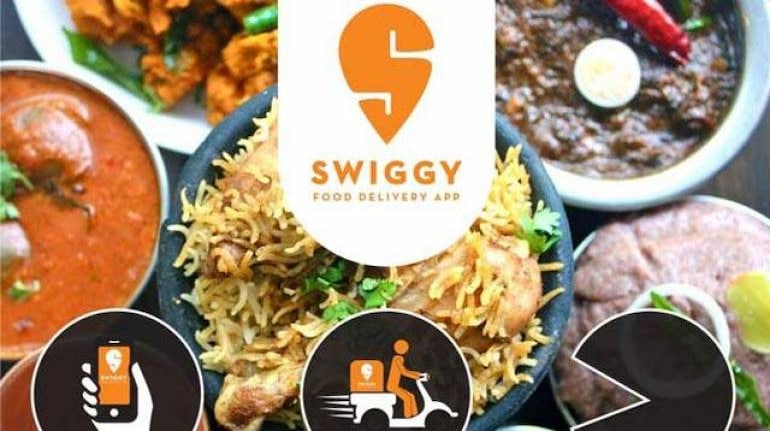



Home-bound due to the coronavirus outbreak, consumers are going big on food, ordering for the entire family. The average ticket size of food orders has grown 25-30 percent, a Swiggy executive has told Moneycontrol.
A bigger ticket size, coupled with the resumption of deliveries in most big cities, is helping the Bengaluru-based food delivery startup bounce back from months of Covid-19 induced lockdown that wrecked the food and hospitality business.
“If the office itself is not open you are basically staying at home, then you are mostly ordering for… two people, because of this underlying trend you are actually in larger households (causing) order value to go up between 25 to 30 percent," said Vivek Sunder, chief operating officer of Prosus Ventures-backed Swiggy.
With a lot of people still working from home, single-serve meals and office lunches had declined, so overall order volumes were still down more than 10 percent, he added.
Office-goers and people living away from families gave big business to food-delivery firms. After the viral outbreak, which is showing some signs of slowing down in India, many went back to their hometowns from the cities where they worked.
Also read: Zomato claims business back to pre-COVID levels, while Swiggy records total order values at 85%
The company, however, has claimed an average recovery of 80-85 percent of pre-Covid order value across the country. While Sunder did not specify the ticket size, for the industry, it is typically in the Rs 250-350 range.
A higher ticket size per order translates to better earnings for food-delivery platforms. Swiggy charges a commission on the order value to their restaurant partners and delivery and packaging fees to the consumer. Bigger orders mean better revenues per order that also helps food-delivery platforms to compensate for the cost incurred in processing the delivery.
In October, Swiggy claimed to have delivered more than 100 million orders since the lockdown was announced in the last week of March. The company also said it was seeing 90 percent of pre-Covid numbers in more than 200 cities, 70 of which were back to normal.
While the pandemic damaged food delivery and the restaurant business, Sundar said the months had taught Swiggy a lot about consumer behaviour, especially their use of hyper-local deliveries.
Sunder spoke about pet food delivery, something Swiggy picked up during the lockdown days and a business that has done well.
The company is getting 20 percent of its revenues from the non-food business like grocery, hyperlocal deliveries, medicine delivery and others.
Sunder, however, won’t make any predictions. There were too many uncertainties in the macroeconomy for the company to make exact predictions on how its various business verticals would shape up.
“We honestly do not have a forecast (for next year) and we are fortunate to have great people on our board, who also understand the uncertainty of the next year, hence they are not holding us to the rigid forecast that perhaps a more stable environment would require,” Sunder said.
The pandemic has also put the days of aggressive cash burn behind, according to the company that was once estimated to be burning close to $50 million a month.
Swiggy would not need to burn excessive cash since it had already acquired a set of loyal customers, who were ready to pay for the value the company brought in.
This would eventually help the company move towards profitability and unit economics positivity, Sunder said.
Swiggy’s Gurugram-based rival Zomato has said it was making money per order. With the growth in revenue and a reduction in spending, the company will be on track to profitability.
One new business vertical that has opened up for food delivery platforms is alcohol delivery. While some states have been open up to this mode, many others have dithered. In the east, states like Jharkhand, West Bengal and Odisha have permitted home delivery of alcohol and platforms have seen healthy growth in these locations.
“We are having conversations with most of the states but we are hopeful soon larger states like Maharashtra and Karnataka will also open up,” Sunder added.

Discover the latest Business News, Sensex, and Nifty updates. Obtain Personal Finance insights, tax queries, and expert opinions on Moneycontrol or download the Moneycontrol App to stay updated!
Find the best of Al News in one place, specially curated for you every weekend.
Stay on top of the latest tech trends and biggest startup news.